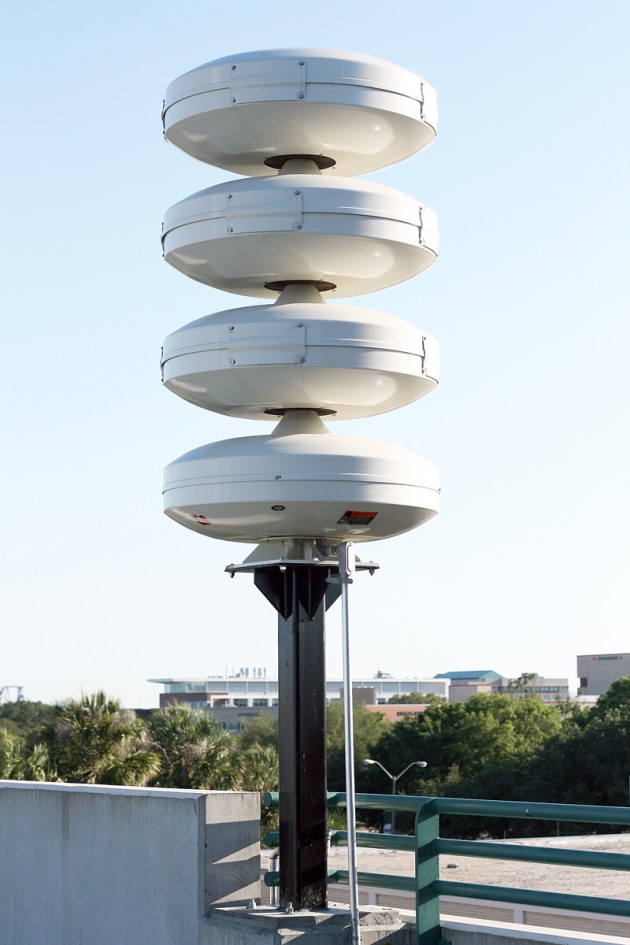New emergency sirens may increase campus safety

Incidents at other universities, like the Virginia Tech shooting in 2007, prompted the installation of an Emergency Notification System (ENS).
On April 30, USF contracted the service through Federal Signal, a leading corporation in advancing security technology. Testing of the ENS began on May 4 and continued throughout the week.
The ENS consists of eight emergency warning stations that will be manned 24/7 by UP. One station is located on each of the four parking garages. The other four are located on poles throughout campus.
Tom Cisco, safety and compliance manager of public safety, said plans to install the system began in January 2008 after a gunman killed a total of 32 students, faculty members, and himself at Virginia Tech in April 2007.
“The department intends for the emergency warning stations to be a combined effort to inform students on dangerous campus happenings,” Cisco said.
He said USF looked at surveys from other universities that showed the ENS was an effective device for informing people of emergencies quickly.
“The emergency signals are intended to get a very quick broadcast that reaches the masses and used in assistance with other campus safety (information measures),” Cisco said.
Each emergency warning station includes a siren, loudspeaker and a clear strobe light. When there is an emergency on campus, UP can trigger the start of the siren from its main office.
A siren blast will occur for 15 seconds on a medium sound level, then a short voice message will come across the loudspeaker, followed by another siren blast at a higher volume.
Eleven emergency situations would prompt the sirens to sound: chemical spill, fire, bomb threat, armed intruder, active shooter, power outage, tornado, natural gas leak, chemical release (vapor), lightning and a Westminster Chime all-clear signal, which announces that safety precautions no longer need to be taken.
Once the emergency stations are activated, students are encouraged to check their phones for MoBull text messages, check their student e-mail, log on to the University’s home page or watch a campus television for more information regarding the situation.
“The Emergency Notification Systems could serve to be a great informer for me because many times I forget my phone at home or I am not around a computer,” said Clark Quackenbush, a senior majoring in environmental policy.
Vanessa Reynolds, a junior majoring in elementary education, said she feels safe on campus, but “any addition to help protect me is a great idea.”
Both Quackenbush and Reynolds are enrolled in the MoBull emergency text-message alert system.
A public demonstration and a public awareness campaign hosted by USF President Judy Genshaft is scheduled in early fall to officially introduce the emergency warning stations.






